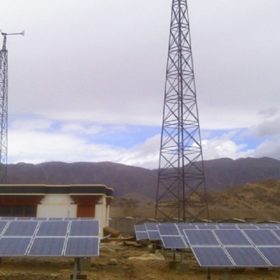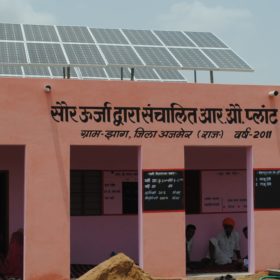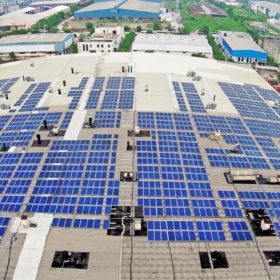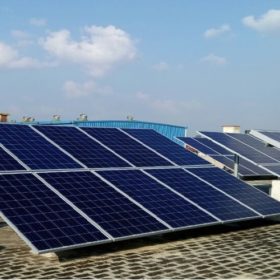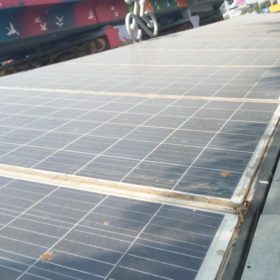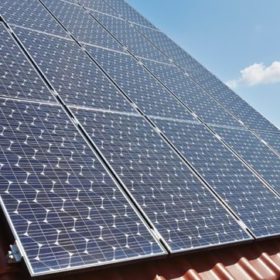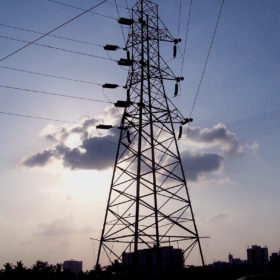PTC Financial joins USICEF initiative to fund distributed solar projects
Infrastructure finance provider PTC India Financial Services (PFS) has partnered with U.S.-India Clean Energy Finance (USICEF) initiative to fund the most promising, investment-ready distributed solar projects in India.
India takes to solar-powered desalination
A 10,000-liters-per-day plant in Tamil Nadu offers hope for powering clean water without fossil fuels. However, researchers warn the technology is difficult to scale up because PV panels take up so much space.
Azure surpasses 100 MW of operating solar rooftop capacity
Independent solar power producer Azure Power’s operational rooftop capacity has a levelized weighted average tariff of Rs 5.82 (US 8.4 cents) per kWh—139% higher than the lowest solar power bid in India.
EXIM Bank to finance 35 MW solar projects in Congo
The Democratic Republic of the Congo will use the amount for installation of three solar PV power projects with a total capacity of 35 MW in the three provinces of Karawa, Mbandaka and Lusambo.
Rooftop solar for Delhi schools to save 4 GW electricity daily
State-run utility Indraprastha Power Generation Company Limited will install solar rooftop plants at 30 school buildings, with capacity of one megawatt in all.
No construction permits without solar in one town in Telangana
The municipal council of Karimnagar has mandated rooftop solar on new buildings of a certain size as part of the Ministry of New & Renewable Energy’s Smart City Mission, which requires 10% of municipal energy to be generated from solar.
Phase II of Rooftop Solar Scheme approved
The President of India has sanctioned financial outlay of Rs 11,814 crore for phase II of grid-connected rooftop solar programme to achieve ‘40 GW by 2022’ target.
Solar capacity addition to slow down till FY2019-20: Crisil
While commissioning is expected to slow down in FY 2018-19 due to the impact of the safeguard duty and GST issues, FY 2019-20 is weak due to delay in auction as several tenders got delayed/cancelled. However, FY2019-20 onwards, solar capacity additions are expected to pick up due to several factors including subsiding/removal of the safeguard duty (which would ease cost pressures).
25.75 GW farmland renewable with Rs 34,422 crore support approved
The President of India has approved total central financial support of Rs34,422 crore for the Kisan Urja Suraksha Evam Utthan Mahaabhiyan (KUSUM) rural solar scheme. Through the scheme, the government aims to add solar and other renewable capacity of 25.75 GW by 2022.
Solar made up 50% of India’s new power capacity in 2018
The level of new solar capacity – 8,263 MW – however, was 15.5% down from the 9,782 MW added in 2017 owing to safeguarding duty and GST taking a toll on large-scale PV. While utility-scale solar declined 23% year-on-year, rooftop PV remained a bright spot, and registered impressive growth of 66%.
